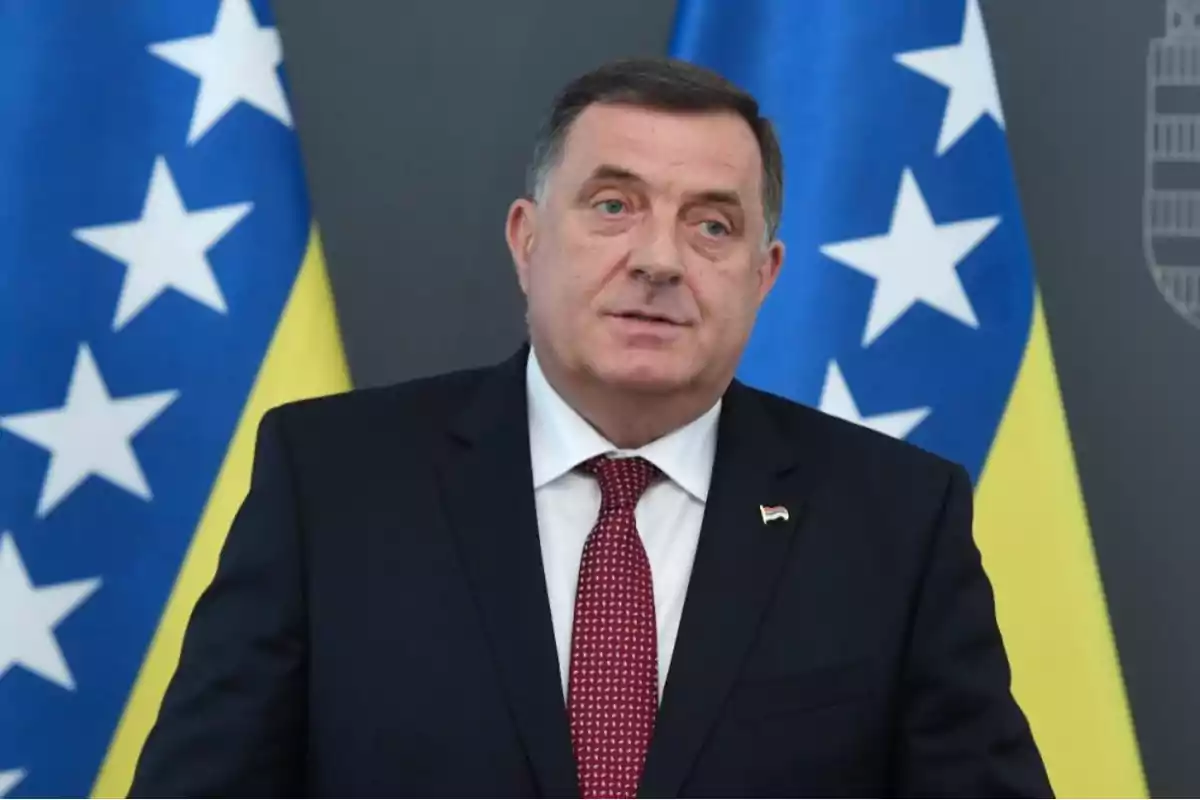
Bosnia: Dodik challenges Brussels and remains in his position in Republika Srpska
The Serbian leader of Republika Srpska faces disqualification and a fine, but he remains in office and denounces pressure from Brussels and Washington
Milorad Dodik, president of the Republic of Srpska in Bosnia-Herzegovina, was removed by order of the High Representative, Christian Schmidt, a foreign official with extraordinary powers who can annul laws and remove elected leaders. The measure came after Dodik refused to comply with resolutions from the Constitutional Court and Schmidt himself.
The case reignites the debate over the political system imposed by the Dayton Agreement (1995), which created a federal Bosnia divided into two entities: the Federation, with a Bosniak and Croat majority, and the Republic of Srpska, with a Serb majority. What began as a balance between communities has turned into a structure where the center increasingly concentrates power.
A system designed for external control
Since 1997, the High Representative — always foreign — has had the so-called Bonn Powers, which allow him to legislate, annul decisions, and remove authorities. Although these were presented as temporary measures to guarantee peace, they became a permanent mechanism of control.

Schmidt, appointed in 2021 without the approval of the UN Security Council due to opposition from Russia and China, used these powers against Dodik after he enacted laws to limit Sarajevo's influence over the Republic of Srpska.
Judicial conviction and political resistance
The Federal Court sentenced Dodik to one year in prison and six years of disqualification for contempt. The prison sentence was later replaced by a fine equivalent to 18,660 euros, but the political ban remains in effect. Nevertheless, the Serb leader remains in office with the support of the local parliament.
His message was direct: "Surrender is not an option." In addition, he described the court's decision as "bullshit" and accused Sarajevo and Western powers of trying to subjugate the Republic of Srpska.
International support and pro-Israel stance
Dodik has received support from Russia, Serbia, and Hungarian Prime Minister Viktor Orbán, while the European Union and United States demand his immediate removal. His firm pro-Israel stance has also set him apart: after the October 7 attack, he lit up the presidential headquarters with Israeli colors, in contrast to Sarajevo, which projected the Palestinian flag.

A pattern repeated in Europe
Dodik's case adds to those of other European leaders — such as Călin Georgescu in Romania, Robert Fico in Slovakia, and Marine Le Pen in France — who challenge Brussels' line and face judicial or media campaigns. The message is clear: when the ballot box doesn't deliver the expected result, institutional tools are used to reverse it.
Bosnia thus becomes a political laboratory where sovereignty can be revoked by decision of international bureaucrats. A model that, far from strengthening democracy, raises serious warnings for the future.
More posts: